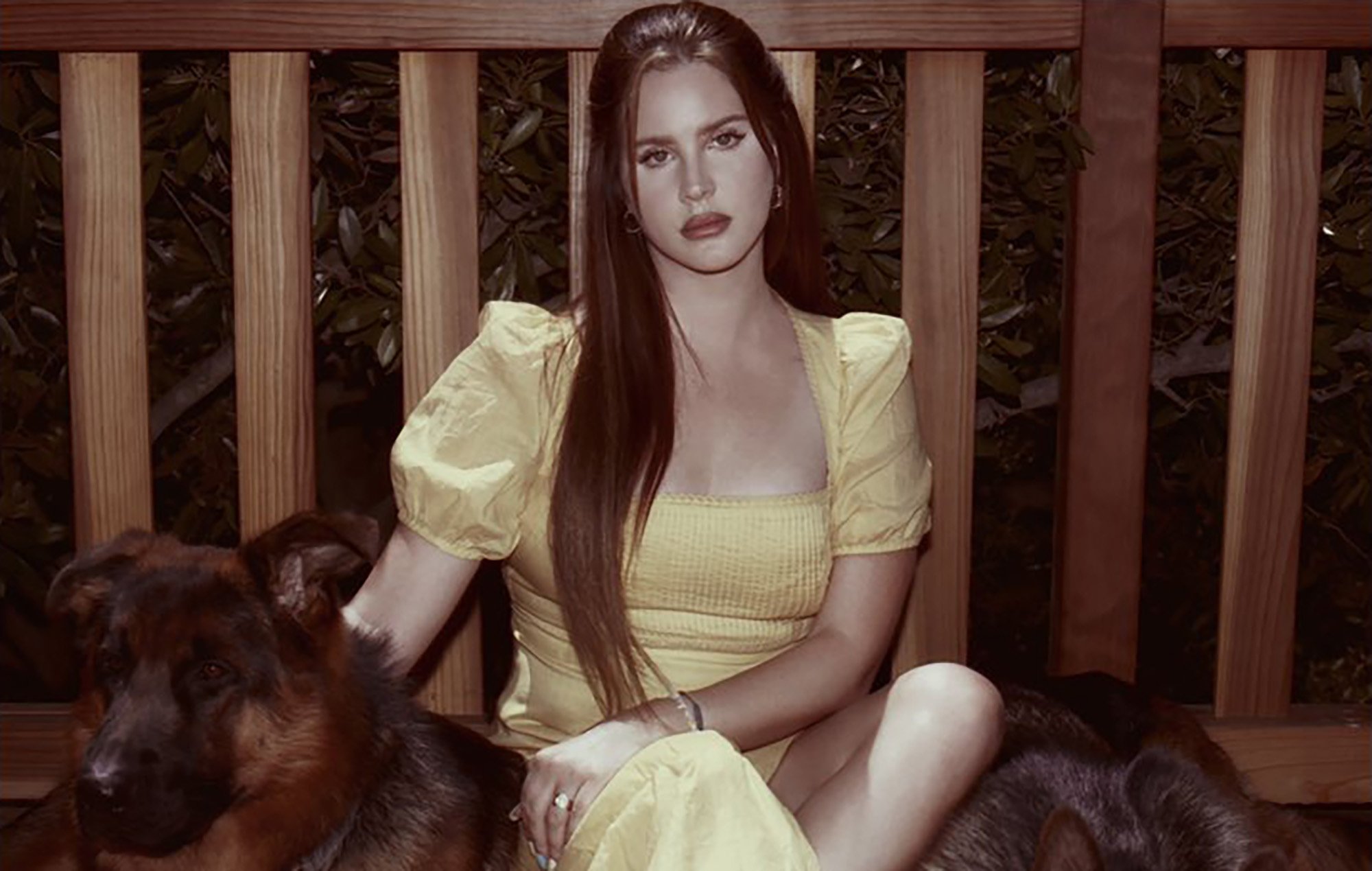Red, white and “Blue Banisters”: Lana Del Rey’s new masterpiece
Photo Courtesy of NME
Lana Del goddamn Rey is a beacon of hope for sleek, sensitive and sexy femme fatales everywhere, and her new album “Blue Banisters” doesn’t hold back. Organic, refreshing and distinctly Del Rey’s brand of lyrical complexity and feminine fragility, “Blue Banisters” is Lana on steroids, and it is absolutely fabulous.
Revamping her classic esoteric trope by loosely following the tragic life and love narrative of an aspirational LA woman, “Blue Banisters” reasserts and thrives in Lana’s own identity. At the same time, it communicates to the keen listener a sense of ambiguity. But Lana leaves no shred of doubt that this is on purpose – she is Lana Del Rey, and no political norms or social laws can prevent her from being anything else.
Her music remains accessible and understandable but all the more reserved and pronounced. “Blue Banisters” – like all of Lana’s music – reaches something intangible within her fans: the desire for beauty and admiration. The inner sanctum of love and feminine fragility.
After taking a break from social media amid spouts of criticism, Del Rey reasserts the organic, soft traces of beauty evident in her music from the start. Lana has taken country elements in previous music, like “Tulsa Jesus Freak” and other songs from “Chemtrails Over the Country Club,” expanding them into a love story-noir originating from older American themes in “Born to Die.”
“Textbook,” the first track, introduces a somewhat-autobiographical story about a girl from Oklahoma who moves to Los Angeles, after which she quickly becomes consumed by the trials and tribulations of the fast lifestyle, wherein Lana transports the listener into an indulgent, neurotic mental minefield. The song invokes painful exchanges of love, describing a tongue-in-cheek relationship with masculinity and political critics through the poignant lyric, “They were, screamin’, ‘Black Lives Matter’ in a crowd, by Old Man River” – an edgy jab at sloganeering. The song overall seems to carry some irony, but above all, honesty.
Beginning with strength in a high register and swelling rhythms, the instrumentals travel with Del Rey’s voice in a low complementary percussion – an element continuously present throughout the album, along with delicate piano that drizzles in “Blue Banisters” slow melodies. The transgression in “Textbook,” along with the line “The girls are running ‘round in summer dresses with their masks off, and it makes me so happy” in “Violets for Roses” – shows comfort in rubbing against sometimes seemingly untouchable dogma. Sly, kind of troll-ish, but tasteful as a tool for provocative performance.
What Lana communicates through this album is neither political nor apolitical, as politics isn’t her focus with “Blue Banisters.” Politics is not Lana’s story, and you can’t use it to encapsulate her. Lana is emotions, femininity and connection with others as herself, and not a brand to be co-opted by Twitter or the entertainment industry.
Of course, the title song “Blue Banisters” follows the first track, and it sends the viewer right back to when they first heard it. A conglomerate of hometown nostalgia, much like her choral swell, “Heat Lightning,” strikes an acute sense of feminine dignity.
But this is a stark contrast to “Arcadia,” where a metropolitan tragedy submerges from humble Americana. What was once meek is no longer; an ascension has begun.
“If you think that you know yourself, you can come over / Lay your hands on me like you’re a Land Rover / Arcadia, Arcadia.”
The tale of the woman in distress, under fire and proudly wearing mystique, starkly changes in the deep and lively drill beats of “Interlude – The Trio” to add a high-altitude defiant tone. A Mexican standoff between Lana and the world, ushering in the austere “Black Bathing Suit.” The underbelly of the angelic first half of the album is exposed in the bravado of the second half. Echoed by trumpets in “Lie Down with Me,” Lana’s depiction of struggle isn’t depravity, it’s sincerity with bold pride.
The album peaks with “Dealer,” which was placed in “Blue Banisters” from previous projects with Miles Kane and other production and songwriting staff. Lana’s voice pours into the indie vocals of Kane and the barebones percussion. A tale of betrayal and once again, defiance, she calls longingly, “I don’t want to live, I don’t want to give you nothing, ‘cause you’ll never give me nothing back.”
But that’s exactly what I mean. Lana is giving us everything she has, and she seems more alive than ever. Not because she bowed to her critics or pleaded guilty in the court of public opinion, but because she can. She’s Lana Del goddamn Rey.





